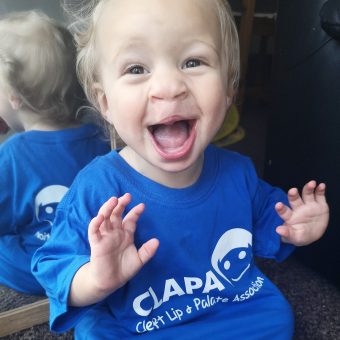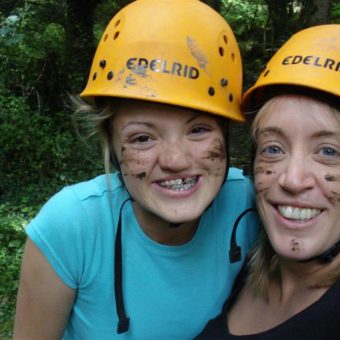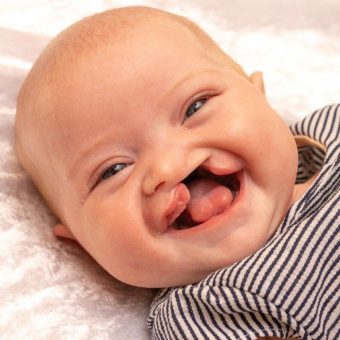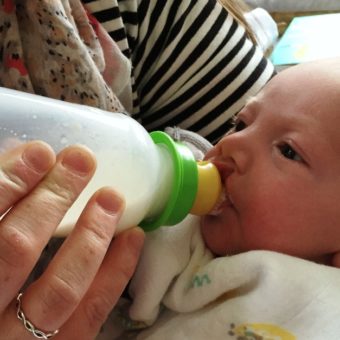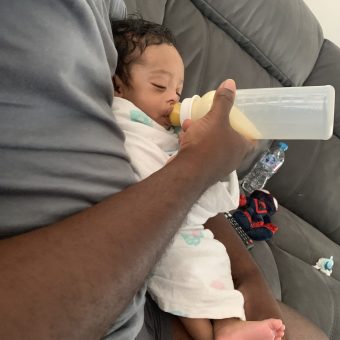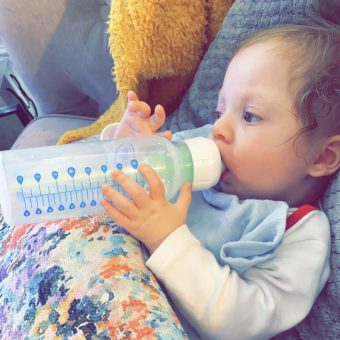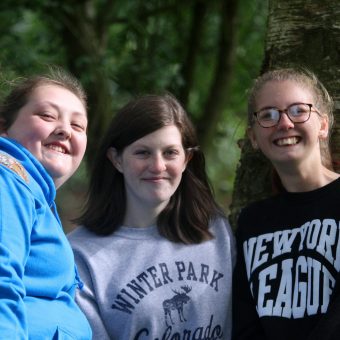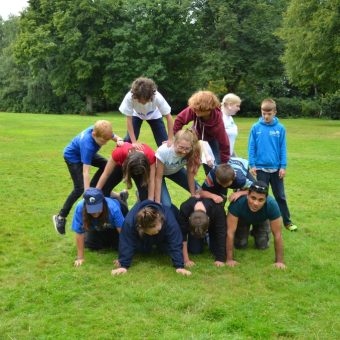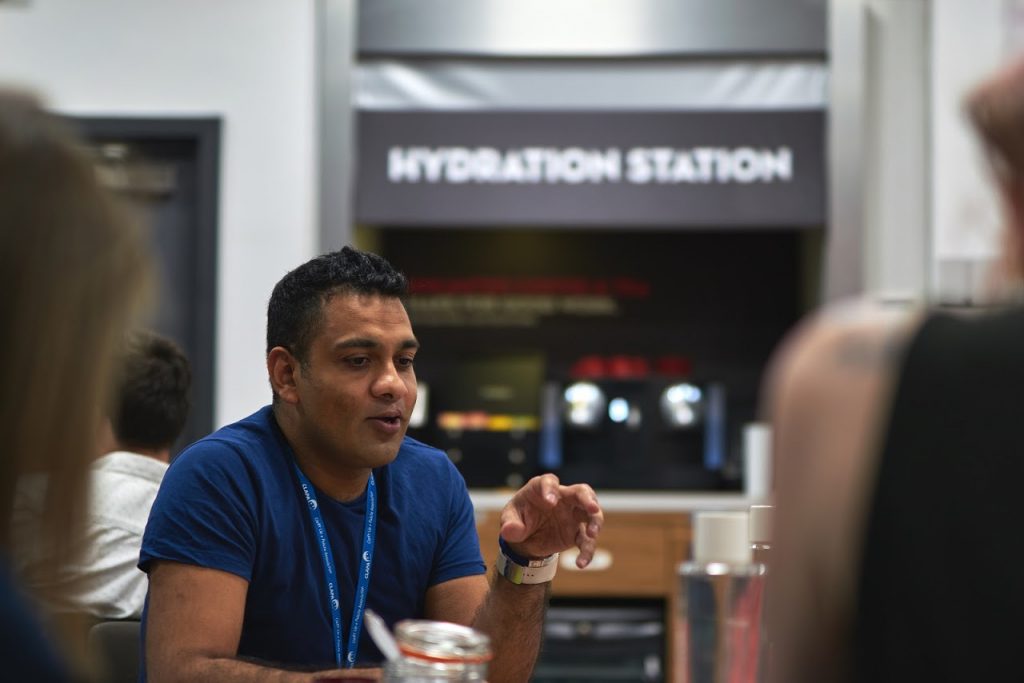
What We Do

CLAPA is committed to safeguarding people of all ages and backgrounds who use our services. Find out more about how we make safeguarding a priority.
What is cleft lip and palate?
In early pregnancy, the different parts of the face form separately and then come together. If this doesn’t happen all the way, the result is a gap or ‘cleft’ in the upper lip or the roof of the mouth. There’s no single cause, and it can happen in any pregnancy.
Every day in the UK, three babies are born with a cleft. It can have an ongoing impact on feeding, speech, hearing, teeth placement and more. The treatment pathway is 20+ years, and many babies have their first surgery at just three months old.
“When my Sonographer told me about my baby’s cleft I was devastated. Soon after, I found CLAPA who introduced me to a whole new community of smiles and support. The experience has been amazing.” – Parent of a child born with a cleft
What does the Cleft Lip and Palate Association (CLAPA) do?
The Cleft Lip and Palate Association (CLAPA) is the only national charity supporting people affected by cleft lip and palate in the United Kingdom.
CLAPA is there from the moment of diagnosis with reassurance, information, and a welcoming community for families, children and adults born with a cleft. Our purpose is to make sure no one affected by cleft in the UK goes through their journey alone.
Our online support groups and events help people to connect with others who share their experiences. Trained volunteers give one-to-one support to help people cope with the most difficult parts of their journeys. Babies born with a cleft often need special bottles and teats to feed, and CLAPA produces and provides these to hundreds of new families every year.
As these children grow up, our services for under-18s help them to build confidence and feel in control of their care. For adults born with a cleft, our Adult Services connect them to others with shared experiences and ensure they can access the care and support they need.
We work closely with the nine specialist NHS Cleft Teams in the UK and support people affected by cleft to get involved with research projects and other initiatives to improve care.
CLAPA receives no NHS or government funding and relies on donations from people like you to continue our work. Please help us to keep our services free and accessible to everyone who needs them.
Bottles and Teats
Babies born with a cleft often can’t feed from a breast or regular bottle. Because of the gap in their palate and sometimes their lip, they can’t form a ‘vacuum’ around the teat and can’t suck; it’s like trying to drink through a straw with a hole in it.
CLAPA is the only UK supplier of specialist bottles and teats for babies born with a cleft. These bottles and teats are used and recommended by NHS Cleft Nurse Specialists.
Each year, we send over 10,000 items of specialist feeding equipment to families and NHS Trusts all over the UK. We provide a free ‘Welcome Pack’ of bottles, teats and information to every new family who gets in touch. We also provide free-of-charge items to families in need.
“At such an overwhelming and daunting time, it is so reassuring and helpful having CLAPA provide the Welcome Pack of bottles and teats which were needed to feed my baby right from day one.”
We manufacture around half our stock with the help of MAM. These are the special soft bottles which parents and carers can use to gently squeeze milk into their baby’s mouth as they feed. The other half of our stock is imported from the USA with the support of Dr Browns Medical. These bottles contain a special valve system which allows babies to get milk through the teat without needing to suck. Learn more about the bottles and teats we supply.
One-to-One Support
From parents facing a new diagnosis to adults considering going back for more treatment, the cleft journey is full of ups and downs. At times like this, having someone on hand who really understands what you’re feeling can make all the difference.
CLAPA has a network of parent and adult volunteers who have been trained to support others one-on-one. Over the phone or email (or a mix of the two), our Parent and Peer Supporters use their wealth of personal experience as well as their knowledge of cleft and the treatment pathway to reassure those in need that they can cope with whatever lies ahead.
The people using this service are often those with the most acute concerns or with feelings they may not feel able to share with the wider community. This service gives them a confidential space to express these worries, safe in the knowledge that they’ll find empathy and understanding in a non-judgemental environment.
“The talk with [my supporter] was amazing. Very helpful and so nice to be able to hear of similar experiences from a parent that meant I didn’t feel as isolated or as helpless to help my child.”
Each year, around 100 people find support through this service, with at least 90% telling us that afterwards, they feel less isolated and more confident and positive about dealing with the issue they got in touch about.
Learn More about the Peer & Parent Support Service
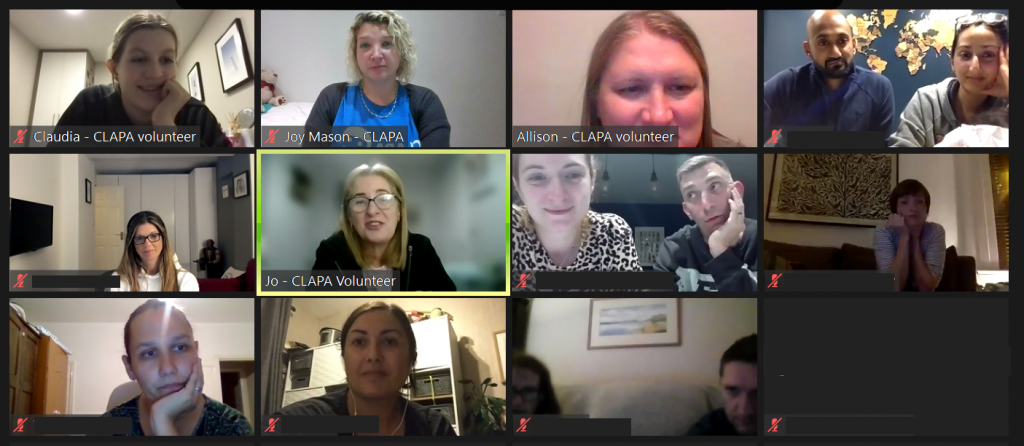
Online Support Groups and Events
We bring together people affected by cleft in the UK to help them connect with others who share their experiences, welcoming them into a supportive community for life.
Our vibrant social media pages promote positivity, bust myths and celebrate differences with regular content created by and for the cleft community. Online support groups moderated by trained volunteers provide an instant connection for those looking for an informal support network.
“It’s so beneficial talking to other parents to share knowledge and experiences together. Knowing your feelings and concerns are perfectly normal and that you are not alone is a great comfort and any advice on what the future may hold is priceless.”
Regular online events give people the chance to talk about their experiences and worries and hear from others at all stages of the cleft journey. Most CLAPA events are online discussions around particular topics such as surgery, feeding and talking about cleft to other people. We also run workshops to teach useful skills such as Baby Signing. Where possible, these are run by volunteers who are parents or were born with a cleft themselves and can use their personal experiences to support attendees. Of those who join our events, 94% tell us they feel better able to cope with cleft-related challenges in the future.
Learn More about CLAPA Events
Making Research Accessible
Even for those with lived experience, medical research into conditions like cleft can often feel inaccessible. CLAPA believes that everyone affected by cleft should have the chance to learn about current research, and that opportunities to get involved should be available to all.
“It’s a privilege to be involved in something like this, and it was quite simply inspiring to see how engaged everyone was. Both [facilitators] made clear that [the researchers] really heard, not only the points made, but the bigger picture for each contributor. That’s so validating,” -Participant in a research consultation group organised by CLAPA
We work with researchers to make sure their projects involve patients and families of all backgrounds and experiences. Our CLAPA Voices panel ensures that people interested in taking part don’t miss a single opportunity to do so. We also host live Q&As with researchers and publish lay summaries so the results of their work can be understood by all.
Learn More about CLAPA’s work with Researchers
Children and Young People’s Services
For children and young people born with a cleft, connecting with others who look and sound like them is crucial to building self-esteem and confidence so they can grow into adults who feel confident about their future.
“Meeting other people, even grown-ups, showed me how I’m not the only one like the way I am, there are others and that’s the most important thing to remember. No one is alone.”
Cleft++ is a mentoring service which uses a specialist online platform to safely connect 12-17-year-olds born with a cleft to a trained mentor. These mentors are young adults born with a cleft and they will draw on their experiences to offer personalised support.
CLAPA’s Children and Young People’s Council (CYPC) is made up of 9-17 year olds born with a cleft who are passionate about making things better for others like them. They meet quarterly to share their thoughts and experiences not just with CLAPA, but also with NHS Cleft Teams and external researchers. With their help, we have created a wealth of resources aimed at young people born with a cleft, from leaflets to videos. Learn more about the CYPC.
Cleft Youth is an Instagram account for 13-18 year olds born with a cleft. Follow Cleft Youth for content created by and for young people born with a cleft. There is also an annual hard-copy Cleft Youth magazine aimed at 6-12-year-olds.
Learn More about Children and Young People’s Services
Adult Services
There are around 90,000 adults in the UK who were born with a cleft. Many are not aware they can access specialist treatment on the NHS for ongoing issues with their cleft, and those who do try to get back into treatment can often face barriers and other concerns along the way.
CLAPA provides research-driven resources and services to tackle the issues that matter the most to adults born with a cleft. Our information is used by the NHS and is designed to help every adult born with a cleft in the UK to feel informed about and in control of their cleft care.
Online events and support groups help adults to connect with others who share their experiences; many tell us it is the first time in years they’ve spoken to another person about their cleft.
“It was very emotional hearing people’s experiences and concerns […] The attitude of everyone present was so caring and heartfelt. It was amazing.” – Adult at a ‘CLAPA Lounge’
In research and other efforts to improve cleft care, CLAPA works to amplify the voice of this historically underrepresented group and ensure they have a place at the table when decisions are being made.
Learn More About Adult Services
Information About Cleft Lip and Palate
Our accredited information on cleft lip and palate is led by the cleft community, reflecting their experiences and emotional needs as well as medical facts. We work to untangle and demystify the world of cleft care to help everyone in the UK navigate the ups and downs of their journey through treatment and beyond. The ‘Treatment‘ area of our website receives around 20,000 visitors each month.
“I can’t stress enough how helpful [the website] was. I was facing a confusing and uncertain search and possibly making wrong choices and felt very alone in that. […] The fact that there is support for adults post the childhood treatment time was very reassuring and not something that would have occurred to me. Knowing there is a community I can be in touch with if I need to and a resource I can come to as well as the helpful accounts of other people’s experience alleviated a great deal of anxiety for me. Psychologically and practically I found the website so helpful.”
Information Service
We provide personalised information and signposting to those getting in touch with complex enquiries about everything from cleft genetics to accessing NHS services. We answer around 150 enquiries a year from people in all sectors of the cleft community, giving them the answers they seek along with the confidence they need to put these into action. If you need help, get in touch today.
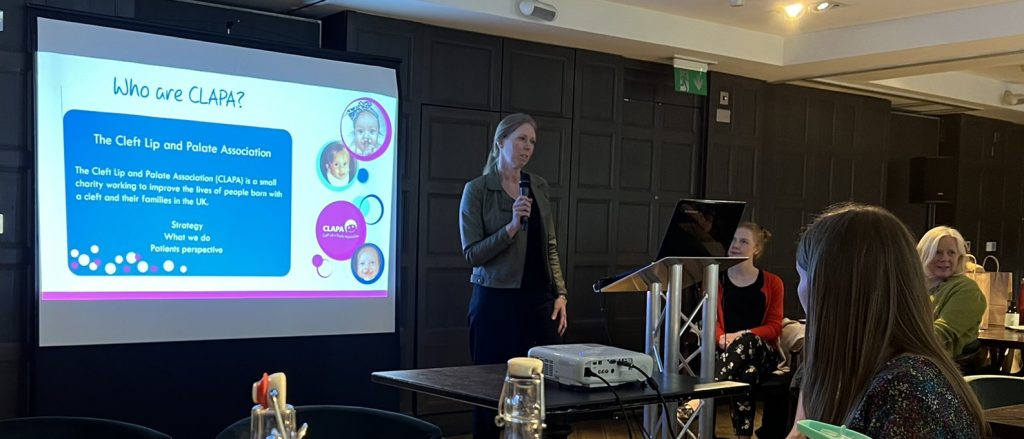
Raising Awareness
Many people affected by cleft report that non-cleft-specialists such as GPs and Dentists often don’t know about the condition. This can lead to insensitive comments and poor treatment. CLAPA is working to educate the next generation of health professionals by delivering talks to dentists, midwives and nurses about cleft lip and palate. These talks focus on the emotional impact of a cleft and personal stories from those affected to ensure that these students keep this in mind when they encounter patients born with a cleft in the future.
